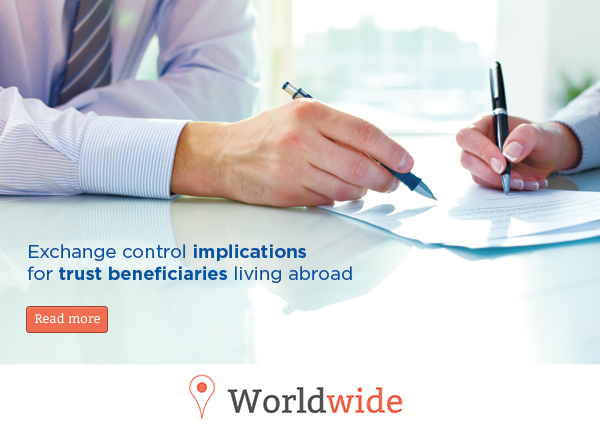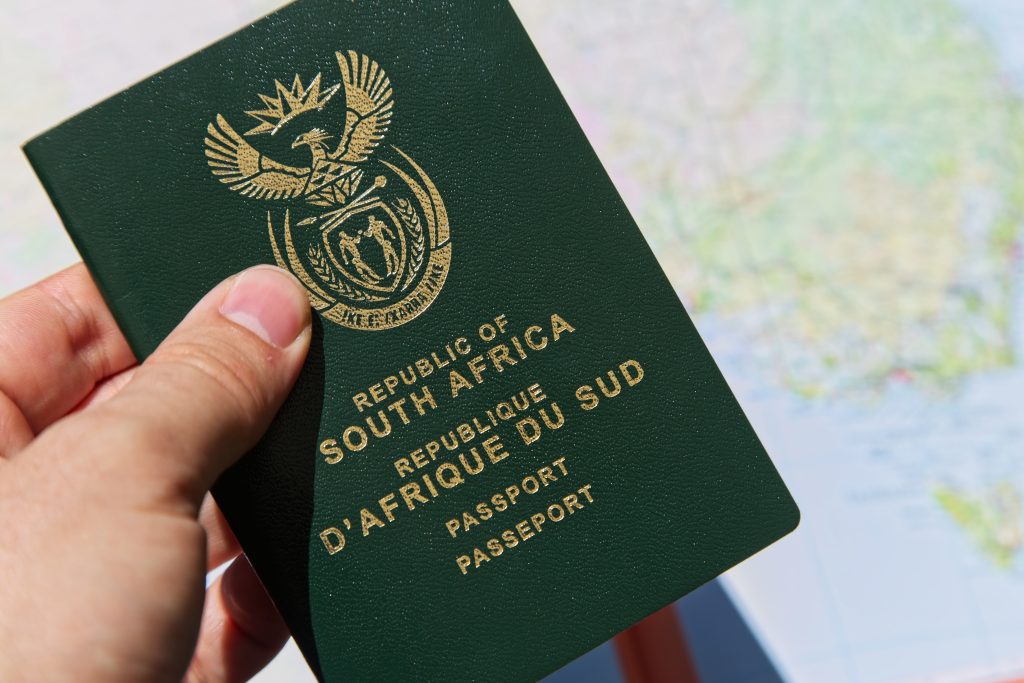Exchange control implications for trust beneficiaries living abroad
Trust distributions to beneficiaries living offshore can become particularly complex and will be explained by way of an example below.
Let’s say the father has placed the bulk of the funds in a trust and the son is now living in the UK.
- Son has not formally emigrated
If the son has not formally emigrated for exchange control purposes, the SA Reserve Bank (SARB) will view him as a resident temporarily abroad. Formal emigration entails applying for emigration via a bank (as authorised dealer of the SARB) by signing and submitting a MP336(b) form to the SARB and obtaining the approval of the SARB for such application. Merely obtaining a foreign passport or residency permit or long-term absence from SA will not be sufficient to be regarded as emigrated for exchange control purposes.
Distributions to residents temporarily abroad are not allowed to be transferred abroad. The distribution to the son must therefore be paid into his bank account in South Africa. The son can, given that he is still an exchange control resident, avail of the annual foreign capital allowance for individuals (currently R10 million) after successfully obtaining the relevant SARS tax clearance certificate. He may then transfer the allowance amount to his offshore bank account. However, should the distribution amount be in excess of the allowance amount, the difference must be retained in his South African bank account and can only be transferred to his offshore bank account in the following year, subject to obtaining a new tax clearance certificate and limited to that year’s foreign capital allowance amount.
- Son has formally emigrated and his father (funder or donor) is still alive
Income distributions may generally, on application to SARB, be transferred abroad provided that the funding of the trust occurred at least three years prior to emigration. Applications to remit capital distributions are generally not approved; it can therefore not be transferred abroad and will be allocated to the son’s blocked rand account held by a local bank (the authorised dealer). As the son is no longer a resident of South Africa for exchange control purposes, he cannot utilise the annual foreign allowance to transfer any money abroad. On the demise of his father, the capital distributions allocated to the blocked rand account and any future capital distributions from the trust may, on application, be transferred abroad.
- Son has formally emigrated and his father (funder or donor) has passed away
Income and capital distributions may, on application, be transferred abroad. The application to the SARB is generally a formality and treated similarly to an inheritance to a non-resident or emigrant, but it is best to plan for a delay in the funds being made available for use abroad.
You are welcome to contact the tax attorney Fanus Jonck (fanus@jonck.net) regarding your trust and exchange control questions.




















